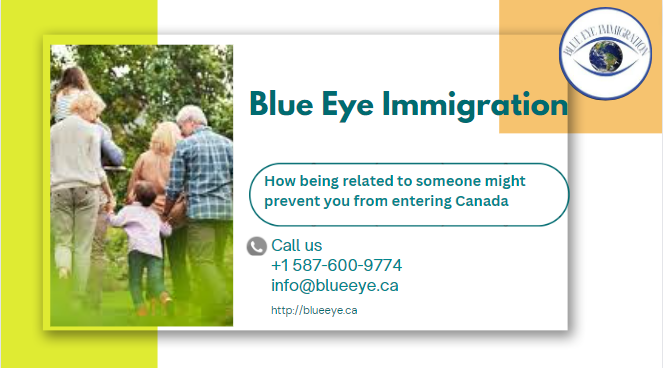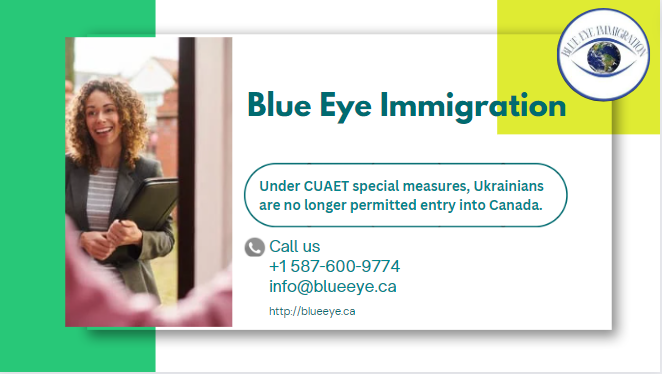Prior to granting entry, Canada makes sure that all foreign nationals fulfill the necessary standards for admission. Securing the nation’s borders from potential threats is a top priority for the Canadian Border Services Agency (CBSA) and Immigration, Refugees and Citizenship Canada (IRCC). Thus, any foreign national whom these two groups deem likely to commit a crime while visiting Canada may be refused entrance.
It is also possible to declare someone medically unable to enter Canada. This may happen if they pose a risk to the public’s health or safety, or if they suffer from a condition that may reasonably be expected to place an undue burden on social and medical services.
Inadmissibility of a family member
Whether they are accompanying or not, all family members of the family class or the immigration candidates for spousal sponsorship must be screened. This involves a medical evaluation and a judgment of whether they are ineligible for security or criminal grounds. In general, police certificates, clearances, or records of non-conviction are required for candidates and family members above the age of 18.
If a family member, whether traveling with them or not, has been found to be inadmissible, the applicant will often be refused admission to Canada on that basis.
In terms of non-accompaging family members, the following circumstances will render the principle applicant ineligible for entry into Canada:
- spouses, unless they are actually or legally separated
- Common-law spouses
- dependent children, for whom the applicant or a family member traveling with them has custody or the authority to make decisions on their behalf
- dependent grandkids for whom the applicant or a family member who is with them has custody or the authority to make decisions on their behalf
If both of these circumstances hold true for your case, an inadmissible family member may not render a primary applicant inadmissible, whether they are accompanying or not:
- You are either an application for temporary residency or a temporary resident, and
- There is no reason for the inadmissibility to be security-related, human or international rights abuses, or organized crime related.
In terms of a family member’s inadmissibility, the Immigration and Refugee Protection Act (IRPA) makes a distinction between permanent and temporary residents. The list of circumstances that render someone inadmissible for permanent residents is more expansive than it is for temporary residents. The rationale for this regulation is that individuals who are permanent residents aim to stay in Canada and have the chance to sponsor family members. On the other hand, temporary residents are not permitted to sponsor a family member and are expected to depart at the conclusion of their term.
What to do if a member of your family is not permitted entry into Canada
It is crucial to keep in mind that you have to state on your application if a family member is not eligible to enter Canada. If this isn’t done, it can be considered deception.
There are several ways to get past inadmissibility. Among them are:
- Permit to Reside Temporarily
- Application for Criminal Rehabilitation
- Letter of Legal Opinion
For a certain amount of time, a Temporary Resident Permit (TRP) allows temporary entry into Canada. A TRP may be awarded for a maximum of three years, contingent upon the purpose of admission. When a foreign individual enters Canada legally and there are more advantages than threats to Canadian society, a TRP is often employed. A person does not need to serve out their whole criminal term in order to apply for a TRP, which can be done at any time.
You apply to the federal government for criminal rehabilitation, which permanently removes whatever criminal record you may have had before entering the nation. This program has the advantage of being a one-time fix that doesn’t need to be renewed. You are no longer regarded as being unable to enter Canada if your application for criminal rehabilitation is approved. This implies that a TRP would not be needed for you to enter the nation.
You have to fulfill the following requirements in order to be qualified for criminal rehabilitation:
- performed a deed outside of Canada that would qualify as a crime under the Criminal Code of Canada;
- have acknowledged or been found guilty of carrying out the offense; and
- The whole punishment, including any prison time, fines, community service, or probation, must have elapsed for five years.
Finally, a person can proactively prevent being deemed inadmissible to Canada if they have committed or been found guilty of a crime by submitting a Legal Opinion letter. An immigration lawyer in Canada produced this letter, which makes reference to pertinent Canadian legal provisions. It will outline the repercussions of a guilty decision and how they might affect immigration to Canada. The contents of the letter would assist the case’s determining authority assess how to respond to various charges and how different convictions and punishment would affect a person’s eligibility to enter Canada.



